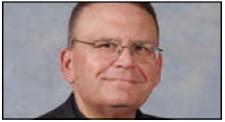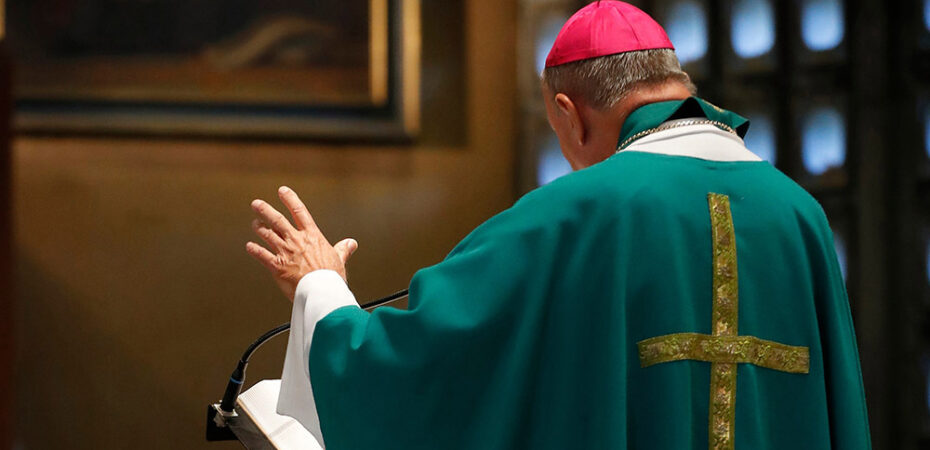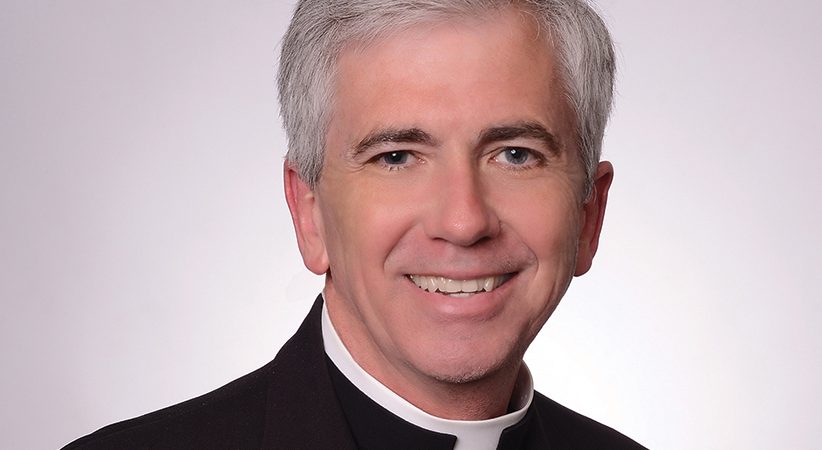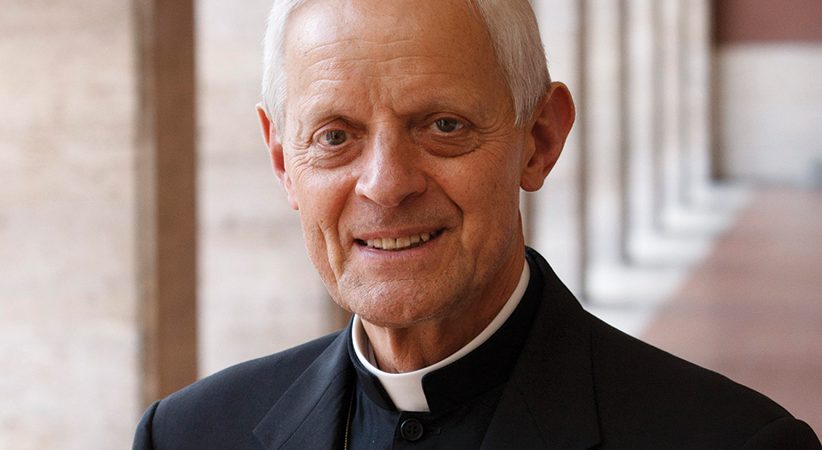The Privilege, Joy and Burden of Preaching
Helpful tips to make preaching less stressful
Msgr. Michael Heintz Comments Off on The Privilege, Joy and Burden of Preaching
 Preaching is a task and responsibility that confronts each priest, literally, on a daily basis. It is one of the more important charges given him at his ordination when he is instructed by his bishop to preach the Word “worthily and wisely.” While preaching is a great privilege and often a source of considerable joy and satisfaction, it can, at times, equally be a source of stress, a burden of sorts.
Preaching is a task and responsibility that confronts each priest, literally, on a daily basis. It is one of the more important charges given him at his ordination when he is instructed by his bishop to preach the Word “worthily and wisely.” While preaching is a great privilege and often a source of considerable joy and satisfaction, it can, at times, equally be a source of stress, a burden of sorts.
At the heart of our life as preachers is our relationship with the Lord in his written word. While priests, we remain also disciples, and it is imperative that we turn to the Scriptures to be fed ourselves before we can, in turn, seek to feed the people we are called to serve. I recommend owning a beautiful edition of the Bible, one that is attractive, comfortable to hold and, most importantly, one that is easy to pray with; there are any number of publishers, editions and translations (NABRE, RSV, NRSV, ESV, New Jerusalem Bible, even the Douay-Rheims or Knox’s translation) — whichever you find most helpful. I further recommend that this be the Bible you pray with regularly and use for homily preparation. Simply by force of muscle memory, when you pick up this edition, you will come to be disposed to prayer and to contemplative reading, which create conditions of possibility not only for fruitful lectio divina, but also for homily preparation.
In my own life, I have found the discipline of daily preaching to be enormously helpful to my personal prayer. When I began working in a seminary some eight years ago and concelebrating the community Mass each day, and consequently not preaching on a daily basis, I noticed my prayer life took something of a hit. I had to regroup and go deeper in my prayer for, without having to engage the Scriptures in a way conducive to preaching them, I was too easily staying on the surface in my lectio.
In parish life especially, a priest has multiple homiletic “registers” at work at any given time: the remote preparation of the coming Sunday’s homily, the daily Mass homily, perhaps a funeral on Wednesday or Saturday’s wedding. Ironically, while this may induce some anxiety, it can also be a source of fruit, in that the varying registers can mutually inform or shape one another. Thinking on a tack for a wedding homily can occasionally lead to an insight quite easily drawn from the readings from, for example, the coming Sunday’s Mass, or vice versa.
Priestly fraternity can also be a source of homiletic help. Just talking to brother priests about what they hope to preach on, or running your own ideas by a confrere to get his feedback, is often a great help, and further serves as a mechanism for accountability so that we don’t fall prey to “mailing it in” under the guise of being too busy.
Feedback from those who regularly hear us preach can also help us be better preachers. Not so much seeking simply to find out “did you like it?” but rather for more fundamental feedback. For example, every preacher has themes, ideas or even language to which he gravitates (often unawares). If you don’t think so, ask someone who hears you regularly if you have go-to themes. You may be surprised at what you learn. We should not be afraid of candid feedback; it only makes us better.
Being on vacation or retreat is a great opportunity for a homiletic reboot — that is, not preaching for several days is often just what we need to refresh or recharge our homiletic batteries, especially when one has had a long stretch that involves daily preaching, funerals, weddings, quinceañeras and Sunday homilies.
It is commonplace in Catholic preaching — and not a bad one — to end a homily with a nod to the altar, linking word and sacrament, ambo and altar. But if we take seriously the paschal character of the Gospels themselves — they were composed through the lens of the Lord’s dying and rising — we should also read the Gospel (and arguably the whole of Scripture) with the same lens. And our preaching — not merely during the Easter season — should always maintain a paschal character. In short, we should allow the altar to “interpret” the ambo, for as Louis Bouyer once said, “the liturgy is the atmosphere where the Scriptures live.”
MSGR. MICHAEL HEINTZ, a priest of the Diocese of Fort Wayne-South Bend, serves as academic dean and director of intellectual formation at Mount St. Mary’s Seminary in Emmitsburg, Maryland.





